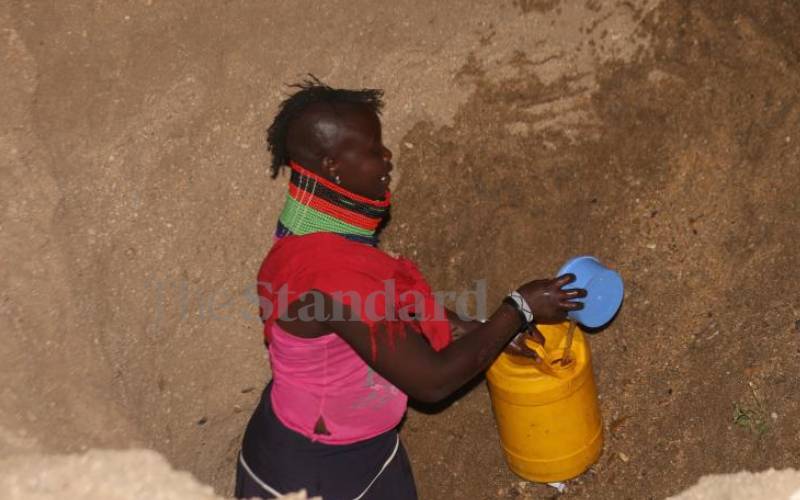×
The Standard e-Paper
Kenya’s Boldest Voice

Early research findings deemed the water unfit for use due to high salinity. [Peter Ochieng, Standard]
The discovery of a massive aquifer in 2013 brought hope to the Turkana community who suffered perennial water shortage for decades.